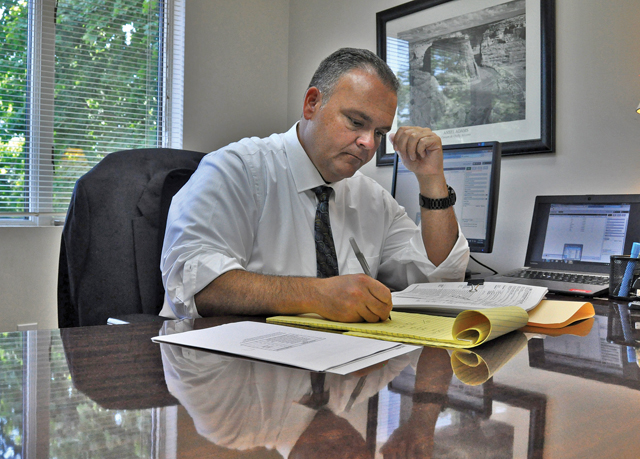Real Estate: Is now the time to refinance?


When British citizens voted in late June to leave the European Union, the referendum sparked fear in the global economy, prompting investors to sink their money into options long thought to be secure, such as treasuries. In doing so, they benefited American homeowners by helping to further lower already plummeting interest rates on home mortgages. This makes it a good time to potentially lower your monthly payment by refinancing.
“Right now, refinance rates are only slightly higher than the record lows we reached a few years ago,” said David Catalano, a mortgage originator at Ulster Savings Bank in Riverhead. “Mortgages really remain incredibly cheap at this time.”
According to Bloomberg.com, the national average for interest rates on 30-year fixed-rate mortgages was 3.63 percent in early June, about three weeks before the Brexit vote took place. As of Aug. 11, they had sunk to nearly 3.39 percent.
“Right now, they’re pretty much as low as they’ve ever been,” said Eve Robin Jarrett of Greenport, vice president of GuardHill Financial Corp., a Manhattan-based mortgage lender.
As a general rule of thumb, it makes sense for homeowners to consider refinancing when interest levels drop at least one full point, Mr. Catalano said. A “good” interest rate is 3.5 percent or less, he said.
Refinancing at such an advantageous time might sound like a no-brainer, but it’s important for homeowners to weigh the following factors before doing so.
Gil Cardillo, a certified financial planner at Peconic Asset Management in Riverhead, said it’s particularly prudent to think about whether you’re actually adding more years to the life of your mortgage by getting a new loan.
For example, he said, let’s say you’re five years into paying off a 30-year fixed-rate loan. If you close that mortgage and open a new one with the same terms, you’ve just added five more years of payments.
“Am I tacking on years to my mortgage?” Mr. Cardillo said. “You have to calculate that in.”
In addition to taking longer to pay off, Mr. Catalano noted that extending the life of a mortgage may not benefit homeowners financially in the long run.
“Over the terms of the loan it may be a wash, or you may be paying a little more,” he said.
If homeowners can’t avoid this issue by refinancing with a shorter term 25-, 20- or 15-year loan, Mr. Catalano said, they must decide whether they’re comfortable having extra cash in their pocket each month but paying out more money over time.
“It’s all about what you’re trying to accomplish,” he said.
Another thing to keep in mind is that banks charge you to refinance, although they must be up front with this information. These fees are often referred to as “closing costs,” and Mr. Catalano and Mr. Cardillo said it’s difficult to place a general value on them, as they are determined by a variety of factors. However, Mr. Cardillo said, they often amount to several thousand dollars.
Your credit rating also helps determine whether you’ll receive the lowest available interest rate, Mr. Cardillo said, so aim for a FICA score of 720 or higher.
If you’re interested in refinancing but don’t feel ready to consult with a mortgage specialist, websites like Zillow.com offer calculators that can provide insight into whether the process might benefit you.
Of course, interest rates could very well continue to fall.
“You know, there is so much volatility in the world right now,” Mr. Catalano said. “I threw my crystal ball out a long time ago. I couldn’t imagine them going lower than this, but I’ve said that before.”
Photo caption: David Catalano, a mortgage originator at Ulster Savings Bank in Riverhead, at his East Main Street office last Friday. Mr. Catalano said plummeting interest rates on home mortgages can make it a good time to refinance. (Credit: Rachel Young)







